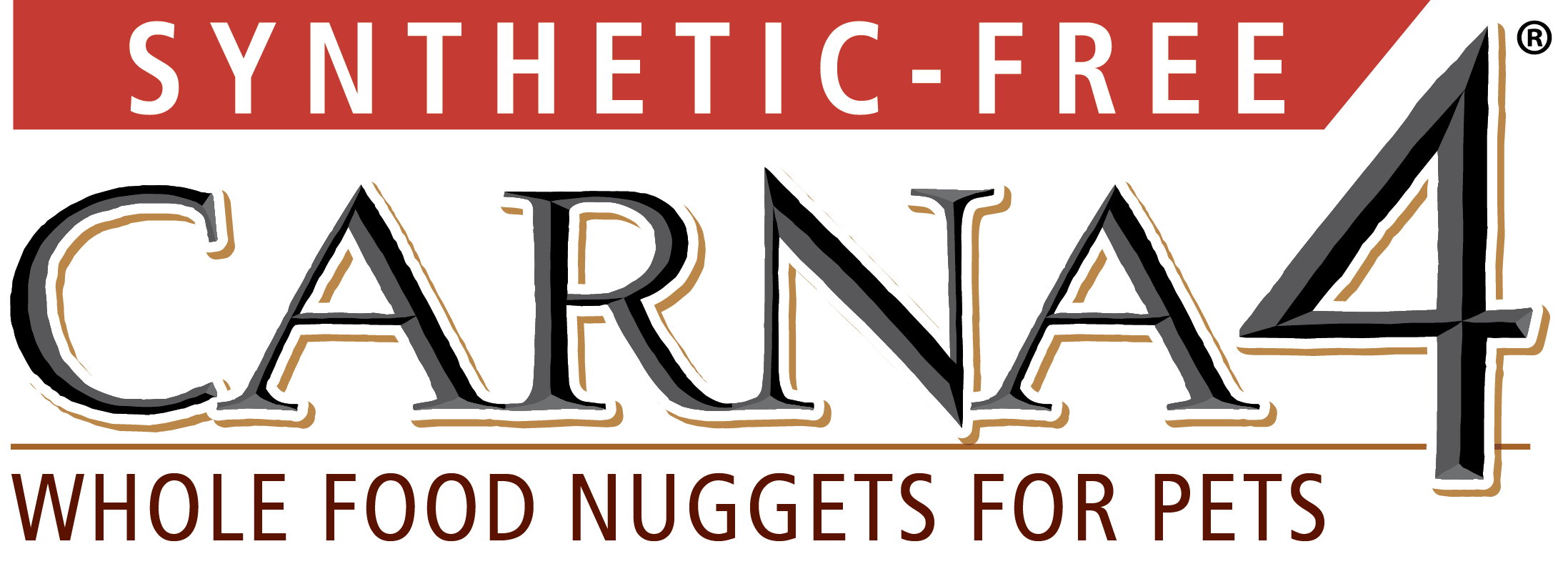More and more high-energy dogs (or vital dogs, as we like to say at Carna4), are being labeled as having ADHD. Pet owners are wondering if this is simply due to inherent tendencies or if other factors may be involved given the rise in hyperactive behaviours seen in pups these days. There is no doubt that certain breeds exhibit more energy than others, however, true hyperactivity (diagnosed as kenisis) is very rare. A dog’s personality is developed via training, socialization and nutrition, so it seems prudent to address each of these areas first before resigning yourself to having a dog with ADHD and attributing it to breed. Today we will focus on the area of nutrition.
Sugar, Artificial Colors and Additives
A study conducted way back in 1980 discovered a sharp decrease in hyperactivity when dogs were put on a 28 day additive-free diet. Although more good research is needed we know that we are what we eat! Would you give your children candy before putting them to bed? No! So check the ingredient list of your dog’s food. Many dog foods are filled with sugar. What is the source of all that sugar? It may be hard to discern because on a nutrition label, nutrient sources are not always obvious. Sugar content depends on the type of ingredient, how much it has been refined and whether it is raw or cooked (and how much it is cooked).
For example, whole brown rice is less than 1/10 of 1% sugar whereas wheat is 7% sugar or 70 times the sugar content of whole brown rice. Certain pet food manufacturers use inexpensive fillers to boost the calorie content in their pet foods, many of which contain lots of sugar. Junk food has the same effect on canines as it does on humans. Sugar will increase your dog’s blood glucose levels and lower her serotonin uptake, which can lead to a negative effect on your dog’s mood and behavior. If your dog appears anxious or demonstrates an increase in hyperactive behaviours shortly after eating, perhaps it is time to look for a food free from synthetics ingredients and low in sugar. Let food be thy medicine!
Food Sensitivities
Dr. Karen Becker, veterinarian to Oprah and vet informant to Dr. Mercola, often talks about food allergies or intolerances and how they contribute to dog behavior. Food intolerance is an abnormal response to a food, which can result from an inability to digest an ingredient, or from pharmacological, metabolic or toxic reactions. In humans, certain preservatives have been proven to contribute to learning difficulties and hyperactivity and the same may apply to dogs. Side effects that have been observed as a result of food intolerance include restlessness and hyperactive behaviors, in addition to a host of other signs of ill health such as digestive issues.
Dr. Becker warns, “If you’re feeding your dog a commercial pet food, she might have an allergy to one or more ingredients in the mix. Many of the so-called “healthy pet foods” on the market contain inferior meat meals, cheap grains like corn, oats and soy, fillers, by-products, food coloring, pesticides, preservatives, and other contaminants.”
Too Much Protein?
In many articles on hyperactivity, high protein diets take the blame. This is not the case nor is there evidence to prove this claim. Protein is not a direct energy source for dogs unless the animal is starved and is eating fewer calories than it is using. When animals consume more energy than they expend, the leftover protein is metabolized into fat and stored away in the body. Protein is used last for energy, only when the carbohydrate and fat energy stores are depleted. Thus, protein as an energy source does not cause excess energy or signs of hyperactivity. Dr. Tom Lonsdale, noted veterinarian surgeon and author of Raw Meaty Bones, dispelled another myth that dogs get “blood lust” from eating raw meat. Instead he noticed a calmer temperament in dogs that are RAW fed. Don’t fear protein-rich diets if your dog is hyperactive, especially when the protein is coming from a clean source.
Other nutritional factors
In one study published in 1999, 634 dogs were evaluated for thyroid dysfunction as it related to various behavior problems. Forty-two of those dogs were determined to be hyperactive and 13 of these dogs were diagnosed with thyroid dysfunction. From this study we can speculate that healthy dog food ingredients that are naturally high in iodine such as sea salt and kelp, may be beneficial in hyper dogs because iodine promotes healthy thyroid function.
Other Helpful Natural Tips to Curve Hyperactivity
- Feed your dog a real food diet made from whole foods and free from synthetics.
- Increase your pooch’s exercise
- Increase her socialization time
- Increase his training time
- Discuss supplements such as L-theanine and valerian root with your integrative vet

